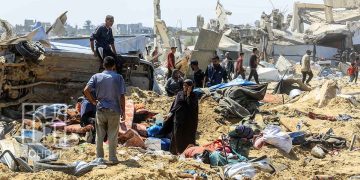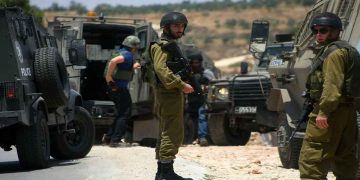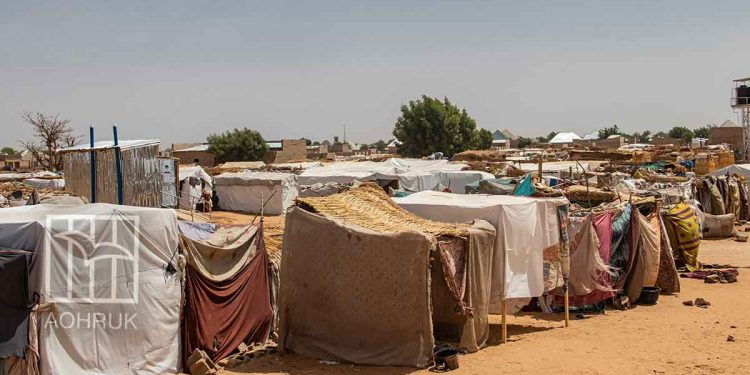A harrowing humanitarian crisis continues to unfold in El Fasher, western Sudan, following the storming of the city by Rapid Support Forces (RSF), who have carried out brutal massacres against civilians. These events have forced thousands of families to flee under dire conditions, with minimal safety, shelter, or care.
According to the United Nations High Commissioner for Refugees (UNHCR), “brutal acts of violence in El Fasher have forced thousands to flee,” stressing that “families are in urgent need of shelter, protection, and care.” Relief teams, however, are struggling to reach those in need due to ongoing fighting and a severe lack of resources.
The RSF assault on the city in late October resulted in hundreds of civilian casualties, as reported by both local and international sources, with widespread looting and indiscriminate attacks on residential neighbourhoods and displacement centres. With the RSF now in control of El Fasher, they effectively dominate all five Darfur states, while the Sudanese army retains control of the rest of the country.
These developments constitute grave violations of international humanitarian law, particularly the Common Article 3 of the Four Geneva Conventions, which obligates all parties in a non-international armed conflict to protect civilians and treat them humanely at all times.
The targeting and forced displacement of civilians, along with denial of shelter and care, are serious violations that amount to war crimes and crimes against humanity under the Rome Statute of the International Criminal Court.
Furthermore, the obstruction of humanitarian aid is a direct breach of the right to humanitarian assistance, as enshrined in Protocol II of the Geneva Conventions (1977), which mandates safe and unimpeded access for humanitarian workers to affected civilians.
The situation in El Fasher reveals an almost total collapse of the principle of civilian protection in armed conflict. Civilians are trapped between militia violence and the diminishing capacity of humanitarian agencies to intervene.
With famine worsening and severe shortages in medical supplies, the risks to thousands of children, women, and the elderly are escalating, amid the absence of security guarantees or safe humanitarian corridors.
El Fasher now embodies a dual crisis: the breakdown of law and the collapse of humanitarian protection. The warring parties appear to treat international humanitarian law as a moral suggestion rather than a binding legal obligation. The ongoing lack of accountability only encourages further violations in other parts of Sudan.
Ultimately, El Fasher is no longer merely a battlefield, it has become a stark symbol of humanitarian and legal collapse in a conflict that threatens Sudan’s unity and its people’s survival. Meanwhile, international appeals for aid and protection remain tragically ineffective against an ever-deepening crisis.


























